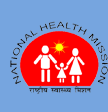The Vector-borne diseases (VBDs) are a group of communicable diseases transmitted by mosquitoes and other vectors. People suffer from a significant disease burden from these diseases all over the State of Goa, which is reflected in the form of morbidity and mortality from Malaria, Dengue, Chikungunya, Japanese Encephalitis (JE), and Lymphatic filariasis
The National Vector Borne Disease Control Programme (NVBDCP) is the programme for prevention & control of these vector borne diseases as an integral part of the National Rural Health Mission (NRHM) of India. The NVBDCP envisages a self-sustained and well informed, healthy India free from vector borne diseases with equitable access to quality health care services nearest to their residences. The Programme activities are directed in a way to meet with the Millennium Development Goal of halting and reversing the incidence of malaria and other vector borne diseases by the year 2015 towards reduction of poverty.
The National Malaria Drug Policy (2013) recommends second line of treatment of all P. falciparum cases in the state. The use of Rapid diagnostic tests (RDT) for diagnosis of malaria cases and ACT combination Therapy for treatment of Falciparum cases has been introduced.
Sentinel surveillance has been initiated for obtaining information on severe Vector Borne cases and deaths at both the District Hospitals & Goa Medical College with the aim of improving referral and treatment services in problem areas. ELISA based Kits are available for diagnosis of Dengue, Chikugunya &Japanese encephalitis.
There is an upsurge noted in the number of cases of diseases like Dengue . This has happened due to favorable environment available to the vector Aedes mosquitoes. Effective control of the vector mosquitoes with the help of community support and increased awareness is very important to control the transmission of these diseases. The role of both private and public sector healthcare providers in these areas is very important to increase the awareness in the community and motivating the people for reducing the breeding sources of the vector.
Japanese Encephalitis (JE) outbreaks are not occurring as vaccination against JE and preventive actions are initiated to reduce its transmission.
The strategy for achieving the goal of elimination of filariasis is by annual Mass Drug Administration of anti-filarial drugs (DEC+Albendazole) which was carried out in the population excluding children below two years, pregnant women and seriously ill persons .Home based management of cases of lymphoedema (elephantiasis) is encouraged under this programme. Hydrocelectomy operations in Goa Medical College and District hospitals are also done under the programme.
The programme is constantly promoting partnership with NGOs, private sector including industry, Faith Based Organizations, Community Based Organizations and Panchayat / Village Committes/Muncipalities . Necessary information is being shared with all partners to facilitate system strengthening and quality enhancement. Through these efforts, access to services and support can be provided to people in isolated and vulnerable areas. We also have the participation of Goa Medical College to function as sentinel sites as well as in operational research activities, training programmes etc .Anti Malaria Month is observed in the month of June every year with enhanced campaigning prior to the peak malaria transmission season.
Improving health outcomes is a shared responsibility. It is intended to pursue VBD control strategies through actions which involve all sections of society and all sectors. By doing so, we could serve as engines of change that would demonstrate what is possible when the right ideas, policies and resources come together. This requires an alignment of people and forces that share a mutual commitment.
It is estimated that the private sector account for around 80% share of all health care delivered in India and this share is increasing rapidly. We urge the private practitioners to join as strongly as possible in the government’s fight against malaria. We request the practitioners to adopt diagnostic and treatment practices which are consistent with the national guidelines. Incorrect schedules based on patient’s demands and sub-therapeutic regimens can lead to emergence and spread of drug resistant strains of malarial parasites. We also appeal to the practitioners through the State IMA to educate the community on methods of preventing malaria and protecting oneself from mosquito bites. Together as partners we have an opportunity to contribute to effective programme implementation and impact. The programme conducts training not only for government personnel but also for private practitioners to sensitize them about the policy and strategies for VBD control.


